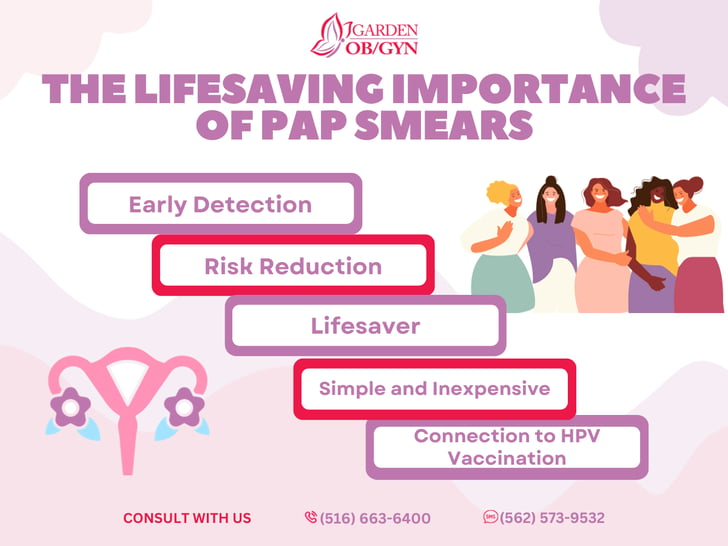The Lifesaving Importance of Pap Smears
Regular health check-ups, including the Pap smear, are vital for women's well-being. This test has saved lives by detecting and preventing cervical cancer, making it a crucial screening tool. Explore its significance in this article.

Regular health check-ups are essential for maintaining well-being, and among these, the Pap smear stands out as a crucial preventive measure. This simple test has saved countless lives by detecting and preventing cervical cancer, making it one of the most important screenings for women's health. In this article, we will explore the significance of Pap smears and how they have become an indispensable tool in the fight against cervical cancer.
Understanding Cervical Cancer
Cervical cancer is a potentially deadly disease that primarily affects the cervix, the lower part of the uterus. It is caused by persistent infections of certain strains of the human papillomavirus (HPV), a common sexually transmitted infection. Cervical cancer often develops over several years, starting with precancerous changes in the cervical cells that can be detected through a Pap smear.
The Role of Pap Smears
A Pap smear, also known as a Pap test, is a quick and relatively painless procedure. During this test, a healthcare provider collects a small sample of cells from the cervix and examines them under a microscope. The primary purpose of a Pap smear is to detect abnormal or precancerous cells early on, which can then be treated before they progress to invasive cancer. This early detection and intervention are the keys to preventing cervical cancer.
The Importance of Regular Screening
-
Early Detection: The most significant advantage of regular Pap smears is their ability to detect cervical abnormalities long before they develop into cancer. When detected early, these pre-cancerous changes can be treated effectively, preventing the progression to full-blown cervical cancer.
-
Risk Reduction: Identifying high-risk HPV strains and precancerous cells can help healthcare providers establish a woman's risk of developing cervical cancer. Those at a higher risk may require more frequent screenings or additional preventive measures.
-
Lifesaver: Cervical cancer is highly treatable when detected in its early stages, with a 5-year survival rate of nearly 100%. However, in the absence of regular screenings, this cancer can progress unnoticed, making it more challenging to treat. The Pap smear is a lifesaver in this regard, preventing the tragedy of advanced-stage cervical cancer.
-
Simple and Inexpensive: The Pap smear is a straightforward, cost-effective procedure, making it accessible to a wide range of women. It can be performed during a routine gynecological exam, and the results are usually available relatively quickly.
-
Connection to HPV Vaccination: The development of vaccines against certain high-risk HPV strains has been a game-changer in the fight against cervical cancer. Regular Pap smears, along with HPV vaccination, provide a powerful two-pronged approach to cervical cancer prevention.
The importance of Pap smears in the realm of women's health cannot be overstated. They serve as a vital tool for early detection, risk assessment, and prevention of cervical cancer. The Pap smear's simplicity, affordability, and life-saving potential make it a cornerstone of preventive healthcare for women worldwide.
Every woman, regardless of age or sexual activity, should have regular Pap smears as part of her healthcare routine. By embracing this simple test, women can take an active role in protecting their health and reducing the incidence of cervical cancer. In the ongoing battle against this potentially devastating disease, the Pap smear remains a beacon of hope and a shining example of the difference that early detection and prevention can make in the lives of women.
































